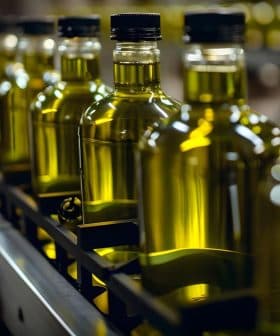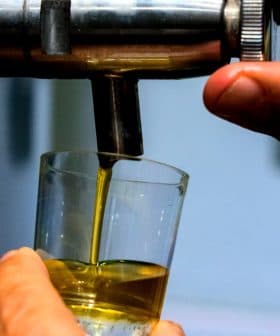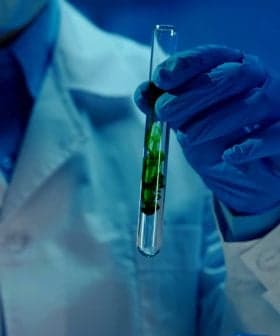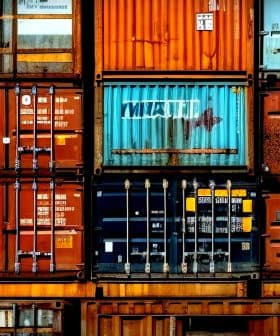Europol Warns Fake Products on the Rise Across EU
Europol has warned producers and consumers of the continuing misuse and counterfeiting of geographical indication food products in Europe.
A report by Europol and the European Union Intellectual Property Office highlights the ongoing issue of the misuse and counterfeiting of geographical indication products in the EU, with countries like Germany, Spain, France, Italy, and Greece being most affected. The report reveals that the counterfeiting of premium food products like wine, spirits, cheese, and olive oil undermines consumer confidence and results in significant financial losses for producers, with an estimated €4.3 billion worth of counterfeit GI products on the EU market in 2014.
A report by Europol, the EU’s law enforcement agency, warns that the misuse and counterfeiting of geographical indication (GI) products continue to be a major issue for EU food producers.
The 2017 Situation Report on Counterfeiting and Piracy in the European Union, a joint report by Europol and the European Union Intellectual Property Office (EUIPO), includes a short section on the misuse of organic and certified origin food labels. It noted that in 2015 there was growth in the counterfeiting of such labels and that the practice is expected to continue.
It also revealed that the countries whose producers are most affected by this criminal practice include Germany, Spain, France, Italy and Greece. Most of the fraudulent products are premium high-value ones like wine and spirits, as well as cheese, meat, fruit, vegetable products (including olive oil) and cereals.
According to the report, there were 16,618 reported seizures of counterfeit goods falsely labeled with EU geographical indications in 2014, but these amounted to only a few the following year. Despite this, it warns that “the risk of GII [geographical indication infringing] products remains substantial” but Europol identifies this as a matter for domestic law enforcement because such products tend to be produced and sold in proximity to the regions where they claim to be manufactured.
The problem with counterfeit goods for local producers is that they are priced out of their own markets by these falsely labeled products which are even sometimes produced abroad. This represents a loss of revenue, while consumer confidence for these products labeled as high quality is undermined.
EUIPO’s 2016 report, “Infringement of Protected Geographical Indications for Wine, Spirits, Agricultural Products and Foodstuffs in the European Union” revealed that in 2014 nine percent of GI products on the EU market were counterfeit — representing a total value of €4.3 billion.
France’s producers were identified as the biggest losers to counterfeiting, having lost a total value of €1.6 billion, followed by Italy (€682 million), Germany (€598 million), Spain (€266m) and Greece (€235m). At the same time, EU consumers lose €2.3 billion annually by paying for what they believe to be a genuine product of high value.
Under the EU’s quality schemes for agricultural products, there are three geographical indications. Products labeled with Protected Designation of Origin (PDO) are produced, processed and prepared in a specific geographical area located within the EU using the ingredients and know-how of local producers.
Those granted Protected Geographical Indication (PGI) are products linked to a certain region where they are produced, processed and prepared, but the ingredients do not have to be sourced from a specific geographical area.
The third category, traditional specialty guaranteed (TSG), denotes products with a “traditional character” with regard to their ingredients or the way they’re made, but do not have a specific link to a geographical area.
There are currently over 1,400 EU food products with one of these three geographical indications across 40 different categories of foodstuffs, with new applications made each month. France, Italy, Portugal, Spain and Greece have the highest number of registered food products.
During a four-month food fraud operation dubbed OPSON V undertaken by Europol and INTERPOL in 57 countries from November 2015 to February 2016, condiments were the largest type of counterfeit or substandard food seized out of a total of 11,131 tonnes of goods. This included 7,000 liters of mislabeled Italian extra virgin olive oil and more than 526 tons of Italian olives that had been colored with a copper sulfate solution to enhance their green color.
Less than a year later, operation OPSON VI uncovered 9,800 tons of counterfeit goods in 61 countries. Olive oil sold as “virgin” in Denmark was found to contain blended or lampante oil.









